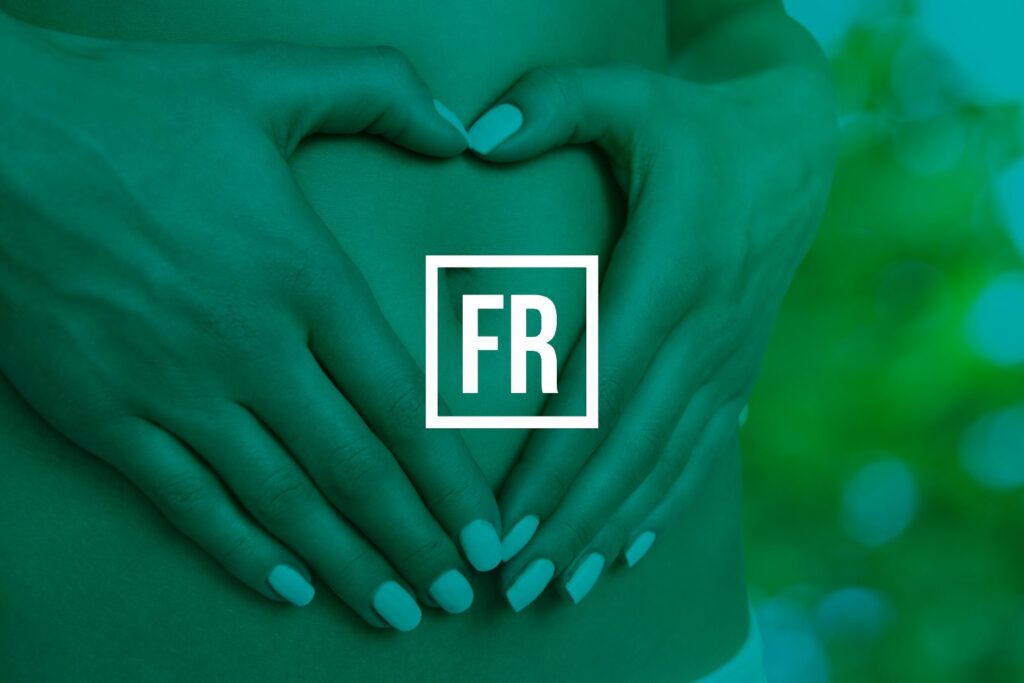Sharing your story
In the first part of this three-part series, we explored decision making around donor conception at the treatment stage, looking at how it’s different and what that can bring up. This second article looks at the differences that can come up once you’re pregnant or have a young child via donor conception.
It’s finally happened!
So, you made the decision to move forward with trying for a baby, you crossed all the fingers and toes you could find and, amazingly, it actually happened. You’re finally pregnant, or you have a young child.
Congratulations!
Maybe this is your first child, and you’re experiencing the excitement (and perhaps the overwhelm) of your new role as a parent. Or maybe you’ve used donor conception for a second child, in which case this may feel like familiar ground. Either way, you have a much-wanted baby and are hopefully enjoying family life.
Telling and Talking
The main difference for families using donor conception is the issue of sharing information about your child’s conception. It’s interesting how quickly you may find yourself in situations where you’ll have to make decisions about how much of your story to share with people. You may be asked questions, often sooner than you think, that require a certain level of honesty about how you conceived. It’s really helpful to be prepared for that, so you don’t get caught off-guard.
Some people are incredibly open. They’re happy to share the most intimate details of their lives with anyone who will listen. If you’re that sort of person you may not worry about who needs to know; let’s shout it from the rooftops! Possibly, you’ll need some ideas on timing and vocabulary and a community around you and your family. But for the most part you’re not troubled by talking about this subject. Not everyone is quite so comfortable. You may have decided to keep sharing to a minimum during treatment, only letting a very small number of close friends or family know you’re using donor conception. You may not have talked about it at all, which is really understandable. It’s a private matter and managing other people’s feelings and expectations may have felt like adding even more of a burden during stressful fertility treatment. But now you’re pregnant or have a child you’re likely to find yourself in situations where you need to decide just how far to go with answering questions and you’ll have to decide when and how to start talking with your child.
Who needs to know and who is going to ask?
The first time potentially awkward questions can come up is at the midwife appointments during pregnancy when you may be asked about medical history. Obviously, providing accurate medical information is really important for good healthcare for pregnant mums as well as the baby/child. But it can feel uncomfortable having to explain your situation and most likely being unable to provide the information on the donor’s side, particularly if you’re caught unawares.
Apart from medical situations, for heterosexual couples, the general assumption will probably be that you used your own eggs and sperm so you’re unlikely to be asked questions. If you’re part of a same-sex couple or are single, and people aren’t aware of that, some of the questions may mean having to clarify your personal circumstances, as well as the fact you’ve used a donor. Lesbian couples and single women (and gay and single men) can find it frustrating to have to first keep explaining that they don’t have a male (or female) partner to strangers and acquaintances who ask about their pregnancy or child.
“Who’s the lucky man?”
Work and other situations may throw up conversations as soon as you’re pregnant. As a solo mum, for example, you might wonder how to respond when your colleague says “Congratulations! Who’s the lucky man, then?”. Same-sex couples may be greeted with a similar “I’ve just heard you’re expecting. Congratulations! How’s your wife feeling?”. You then find you need to explain that actually your partner is male and you’re using a surrogate and an egg donor. It can feel like a lot of detail to share in one go.
Mostly, people are just curious and interested, but the conversation can quickly veer into very personal topics. You might feel like answering honestly, or you might not, and you need to be prepared.
Set your boundaries
Sharing personal information with trusted friends and colleagues is one thing. But there will, of course, be people who you aren’t close to, and may not even like very much, who may want to know more details than you want to provide. Boundaries can be hard to manage in off-the-cuff conversations and we would recommend finding some default sentences to rebuff anyone you don’t want to share too much with.
Remember that you don’t have to answer all (or indeed any) questions. It’s fine to respond with something ambiguous, or to omit certain bits of information, while you decide whether or not you want to explain further with this person. There can be a pressure to be totally honest, particularly if you’ve decided you want to be open. But openness can still have boundaries, in the same way that you probably wouldn’t share the same amount of detail with someone you hardly know as with a very close friend. There is time to reveal more information, if you decide to, later on.
“Where does her curly hair come from?”
Who looks like whom and who shares traits or interests or talents is a really common topic in families. Those conversations often start as soon as a baby is born and continue for a lifetime. For some parents, these kinds of comments about a child’s appearance and traits can be a challenging reminder that they aren’t genetically related, or that they may have got those traits from someone outside the family.
It’s helpful to remember that people rarely mean to be hurtful and may not even appreciate that you find these comments or questions hurtful. The secret is to build resilience and try to embrace the donor and their essential contribution in making your child into your family story. Maybe your daughter gets her curly hair from the donor’s side. Well, how wonderful! It might take time to genuinely feel that level of confidence, to acknowledge the donor in this way. Hearing from others, further along that family journey, is often really helpful just to know that it is possible and can be so positive.
Thoughtless comments may come your way
If you decide to share part or all of your story with other people you may be anxious about their reaction. In our experience at the Donor Conception Network, people are mostly open and positive when they hear the news. It may not be a choice they think they would make for themselves, and they are entitled to that opinion. We are all different, of course. However, they can sometimes say insensitive or hurtful things. People may be overly curious, or nosy, and they may express themselves clumsily or thoughtlessly. Very rarely are they actually being deliberately mean.
Remember, they have probably had about 5 minutes to consider what you’re telling them, and they certainly won’t be clued up on language and the more subtle nuances of donor conception. For you, on the other hand, this is most likely a topic you’ve spent weeks, months, possibly years thinking about. They are playing a catch-up game to get to understanding things to the depth that you do, and may need time (and a bit of patience!) while they do that.
Do I have to tell my child and how will they respond?
It’s important that donor conceived people know the truth about their conception, but we know that many people find the prospect a challenge. We generally recommend starting the conversation when children are young so that they can integrate the information into their sense of who they are. Telling young children is also easier for parents. A baby won’t notice as you experiment with different language or ways of telling the story. They won’t notice if you get upset when remembering your fertility journey, which may bring up all sorts of emotions.
When you first tell them, young children are unlikely to be very interested or ask questions. They’ll probably find the subject utterly dull and uninteresting. The important thing for them is that they feel loved and cared for. As they get a little older, they may need language to explain things to other children, when necessary, particularly if they are in solo parent or same-sex couple families. Other children may well be curious and, as part of trying to understand the world around them, may quiz your child about how it’s possible not to have a dad or a mum. You can empower your child with simple and clear ways to respond and explain things when needed. As they grow up, the story and the language they use may evolve as they make sense of it and take ownership. I’ll cover more of that in the next article in this series.
It’s not a secret but can I keep this private?
The balance between privacy and secrecy can be tricky. The truth is that once you’ve been open with someone, your child or another adult, it’s very difficult to keep control of the information. It’s possible that people you hadn’t wanted to know will find out. It’s why we emphasise building parental confidence and resilience, with support, so that if difficult situations do arise, you’re able to deal with them. You might also be surprised by how many other people have had their own similar struggles and find your openness a source of inspiration.
Exactly how you tell your story depends very much on you. Some people need time to build confidence in talking about it and for others it comes more easily. Your personal situation will probably also determine how much you want to share and when. Children’s story books can really help, providing a structure and narrative, but the precise how and when is something that is very individual.
What if I’m not sure about some of the decisions I’ve made?
Now that a baby is here, any doubts or anxieties that weren’t addressed earlier may resurface which can be disconcerting, particularly whilst you’re trying to enjoy family life. You may feel you rushed headlong into treatment and felt blindsided by the decisions you had to make, often under time-constraints and emotional pressure. It can be hard to separate out the normal ups and downs of adjusting to life with a baby from more serious worries or issues. If you do have complicated feelings get in touch with us at DCN and, of course, get any professional support you think might help.
I’m not feeling super confident
That’s really common and we can help. DC Network was founded to help support people with all things donor conception related, and particularly around ‘telling and talking’. The charity publishes books and runs workshops to help people with being open and finding the words to explain to children in a simple, positive and age-appropriate way. Our range of books for young children ‘Our Story: How we became a family’ has variations for pretty much all family situations, including surrogacy and twin versions.
The ‘Telling and Talking’ series of booklets for parents cover the topic at the different child developmental stages. And the DCN Telling and Talking workshops provide a confidential, facilitated and supportive space to explore hopes and fears and plans with other parents at a similar stage. Our Network is great for those who would like to connect with other parents, or enable their children to meet others made ‘just like them’.
Our community is incredibly diverse and super supportive. Join us!
The donor conception element of your family story is important, but small. There is so much more to being a family and family life. Things will work out gradually. Make sure you enjoy this precious time.






